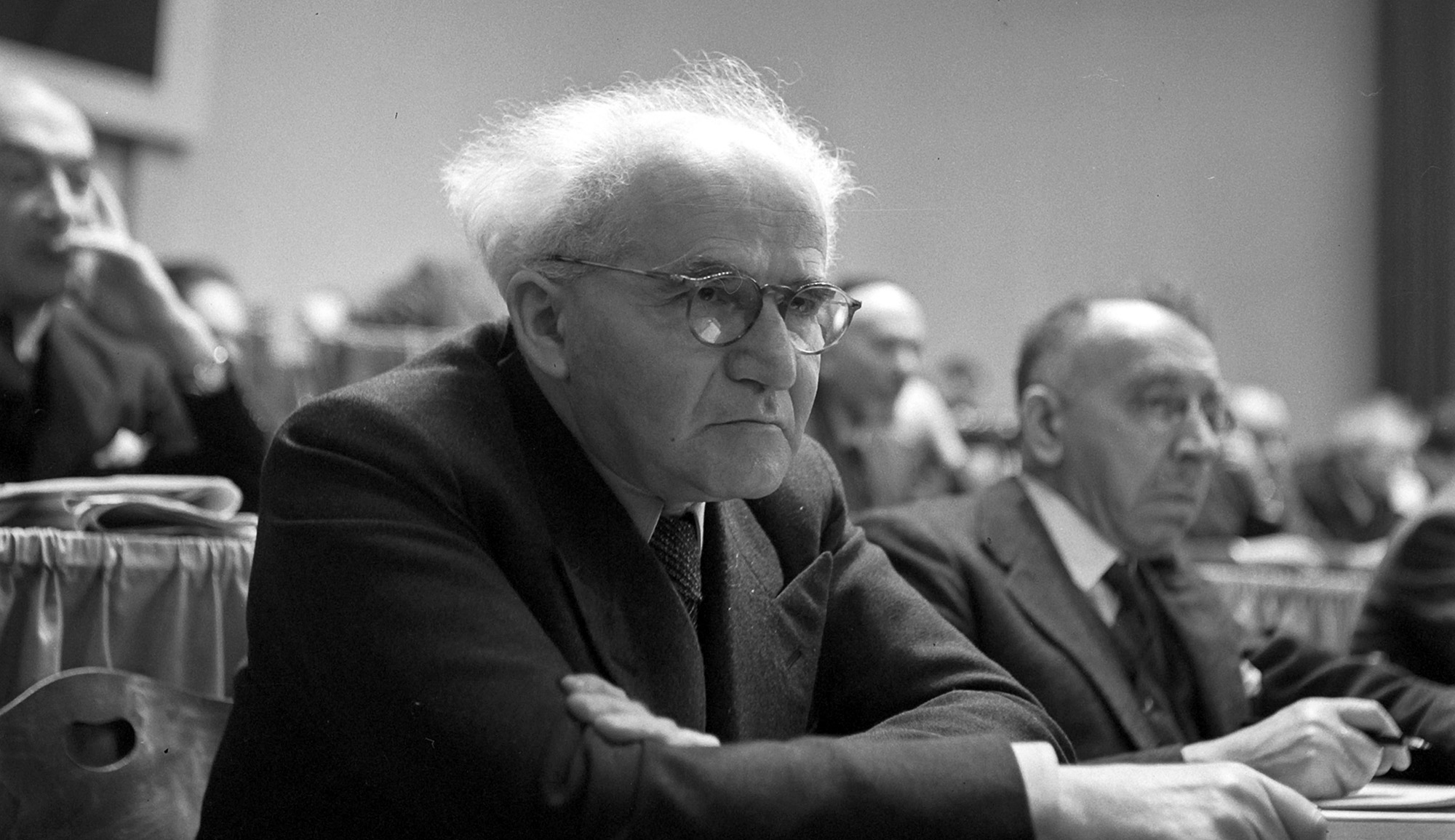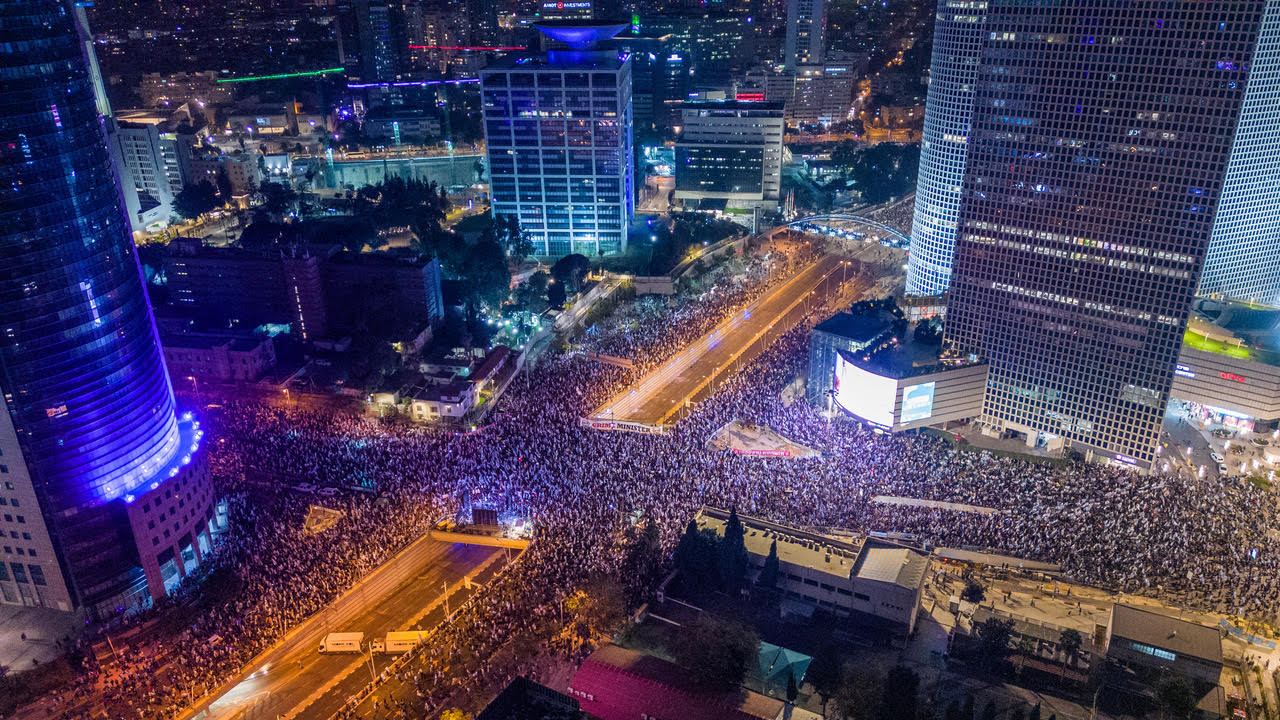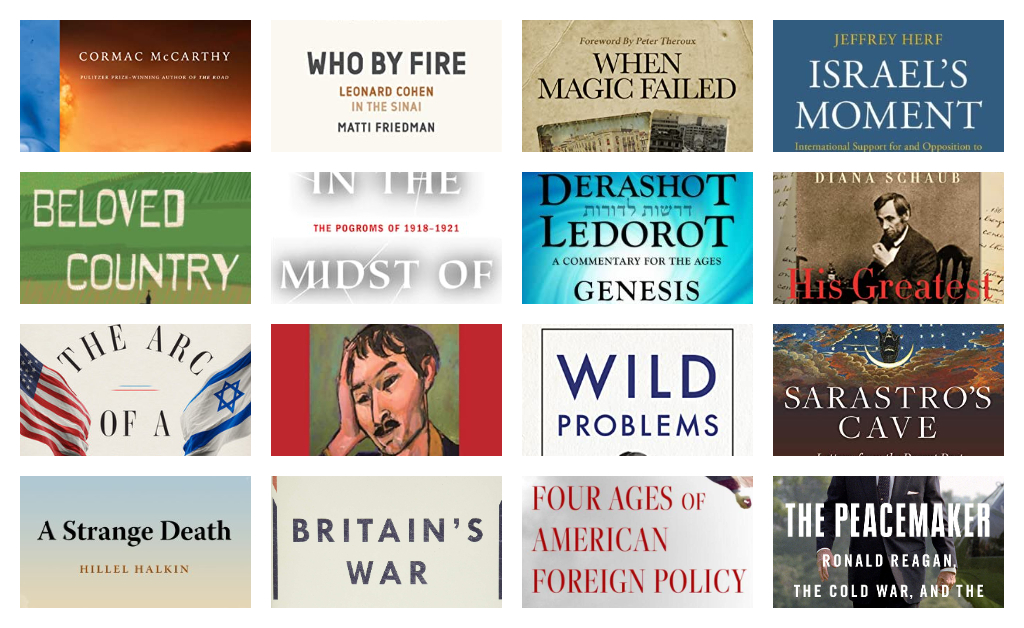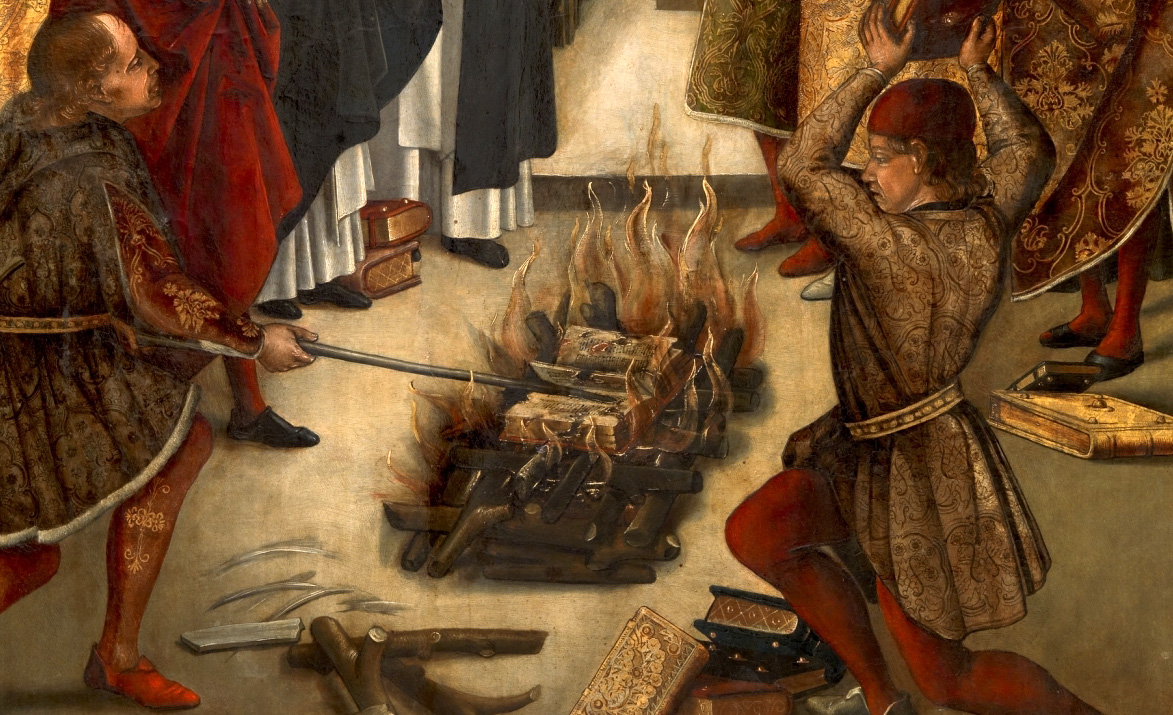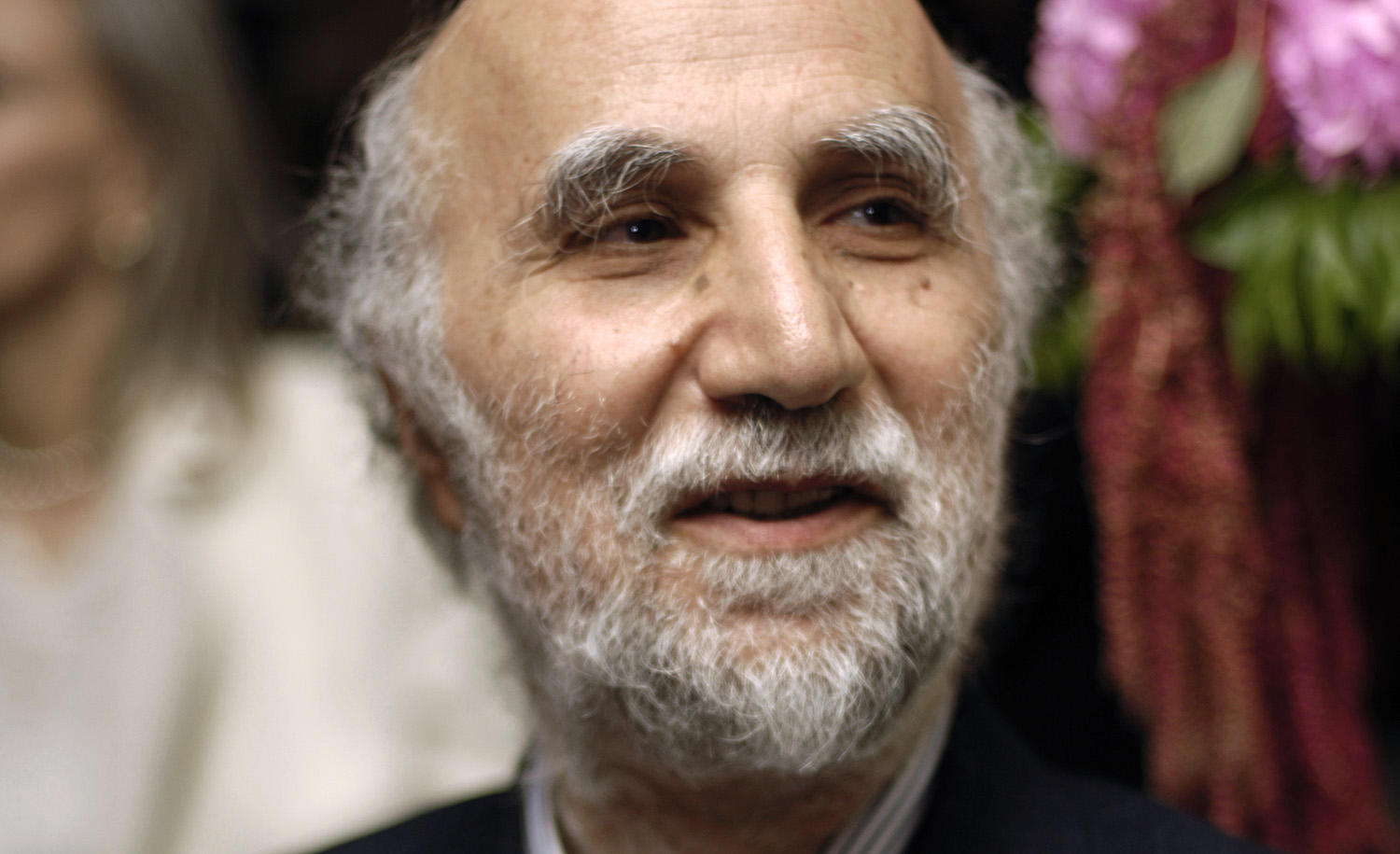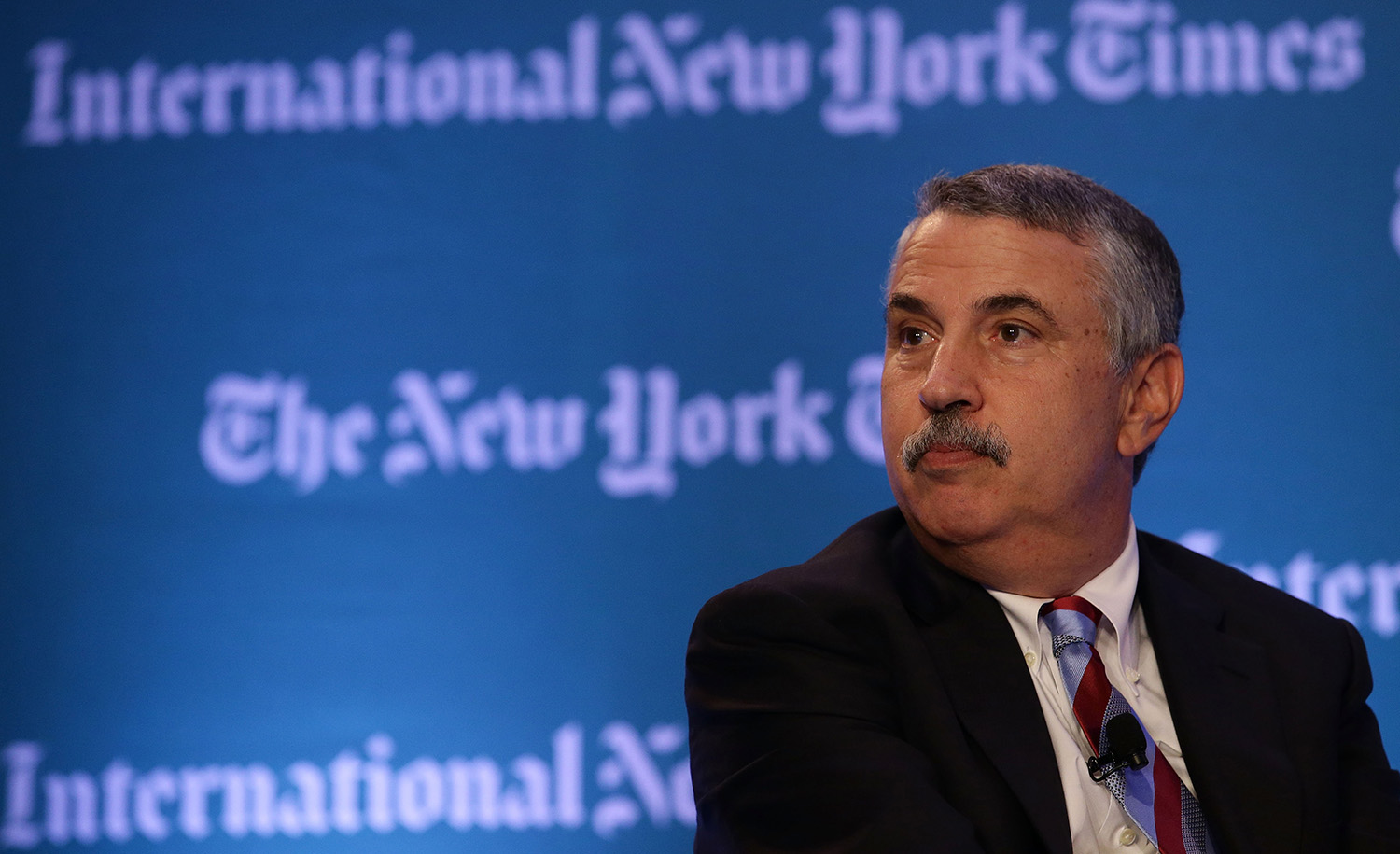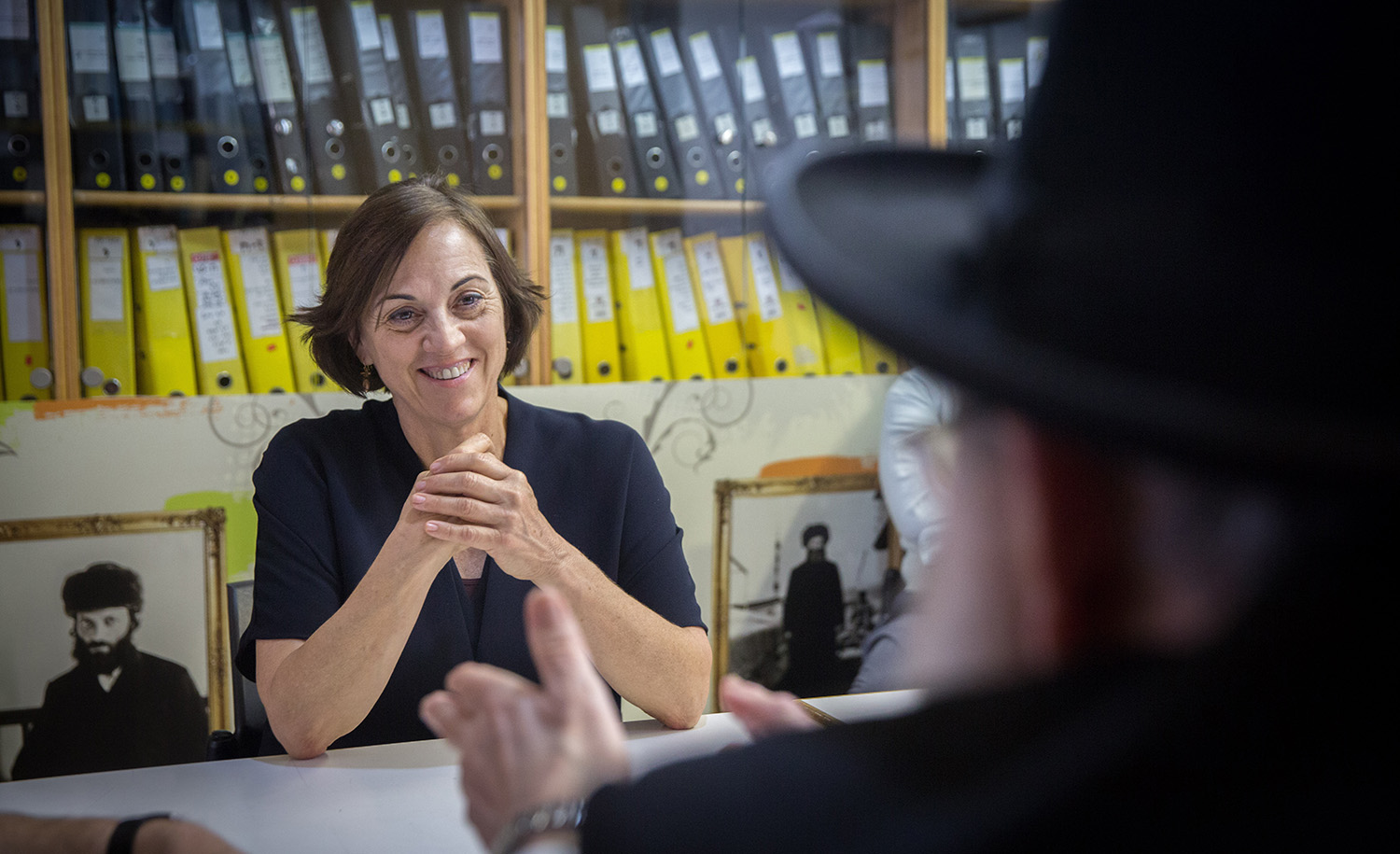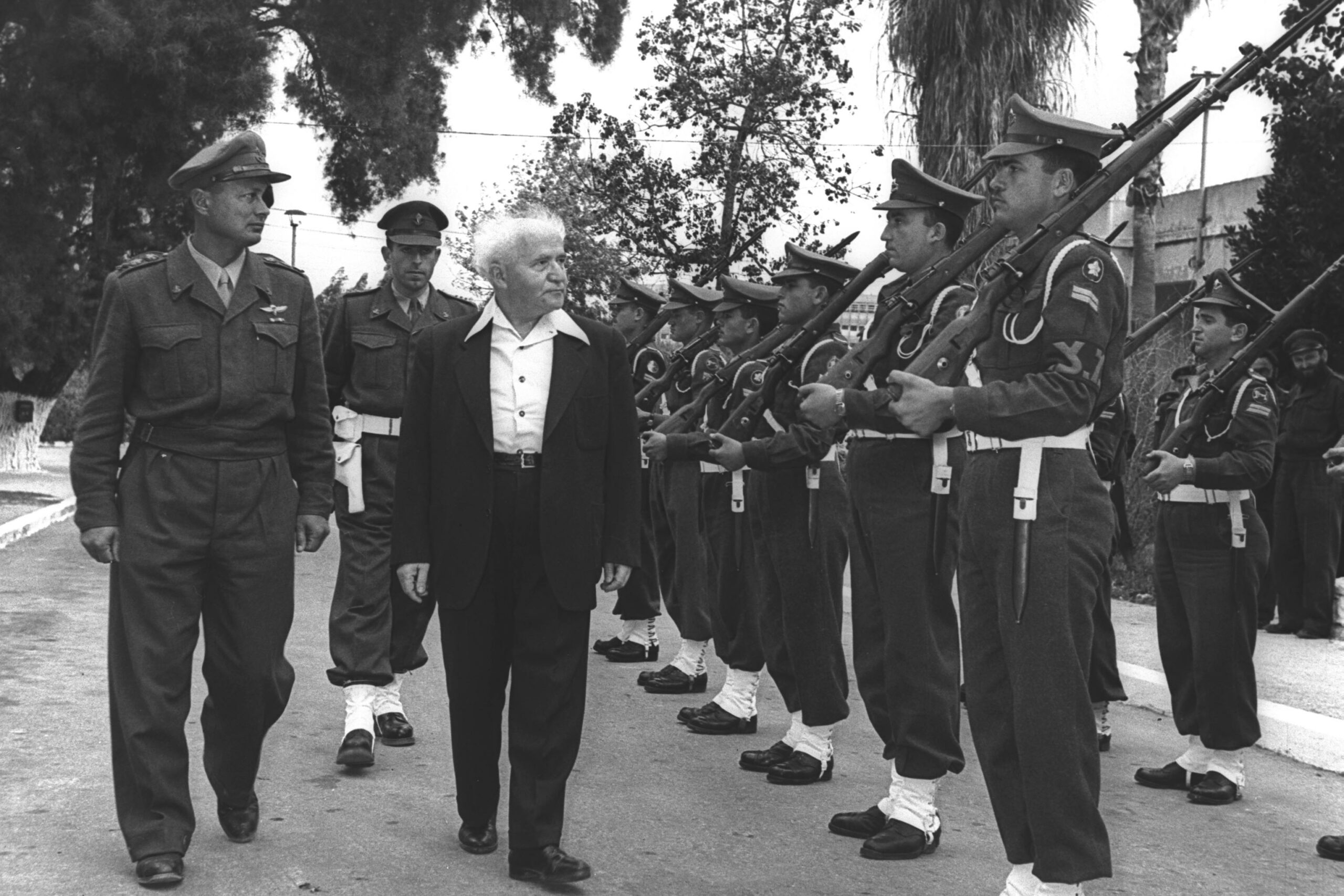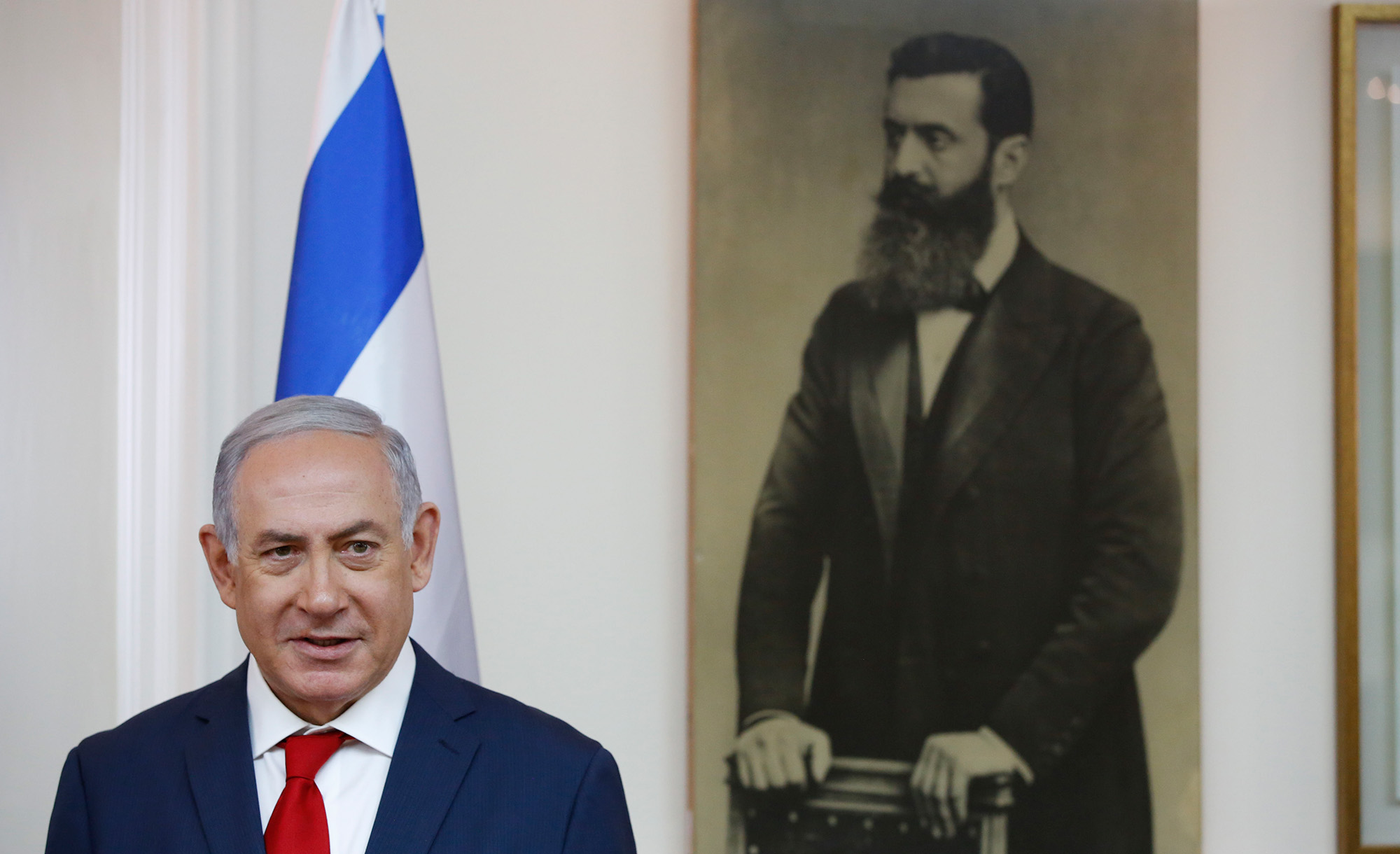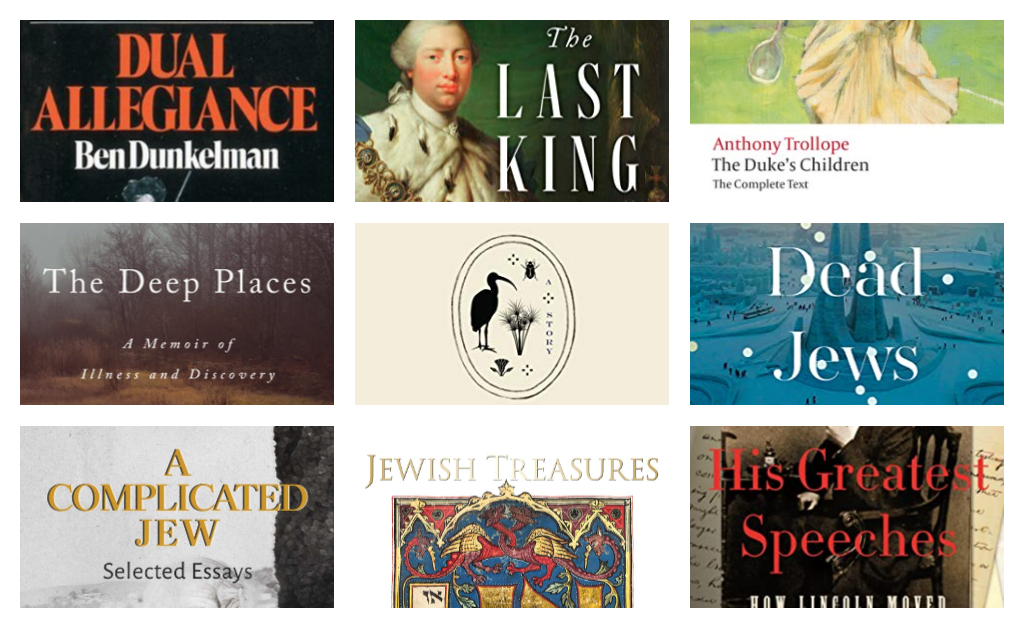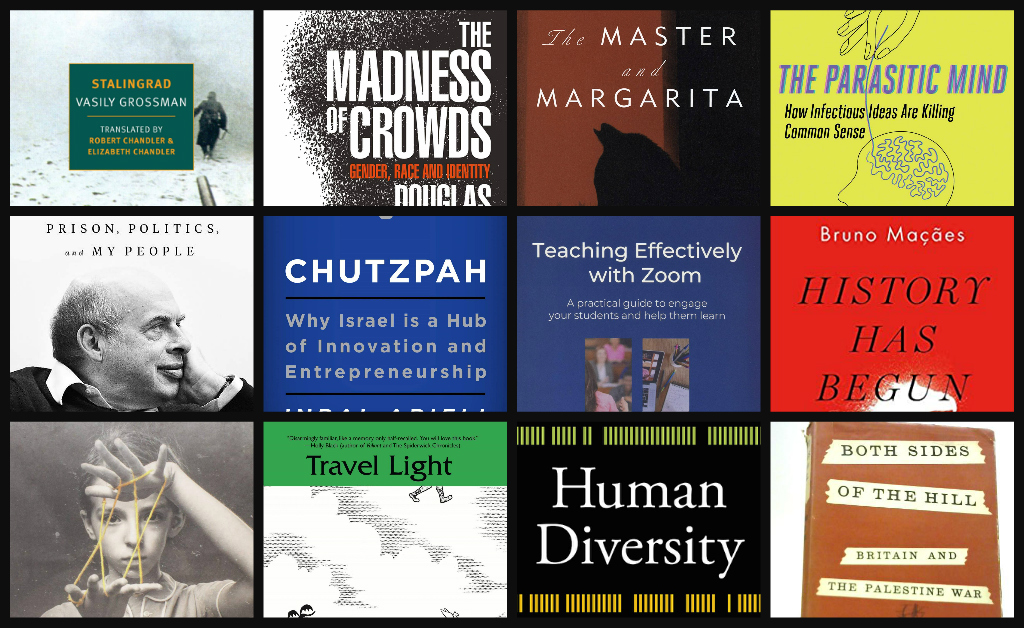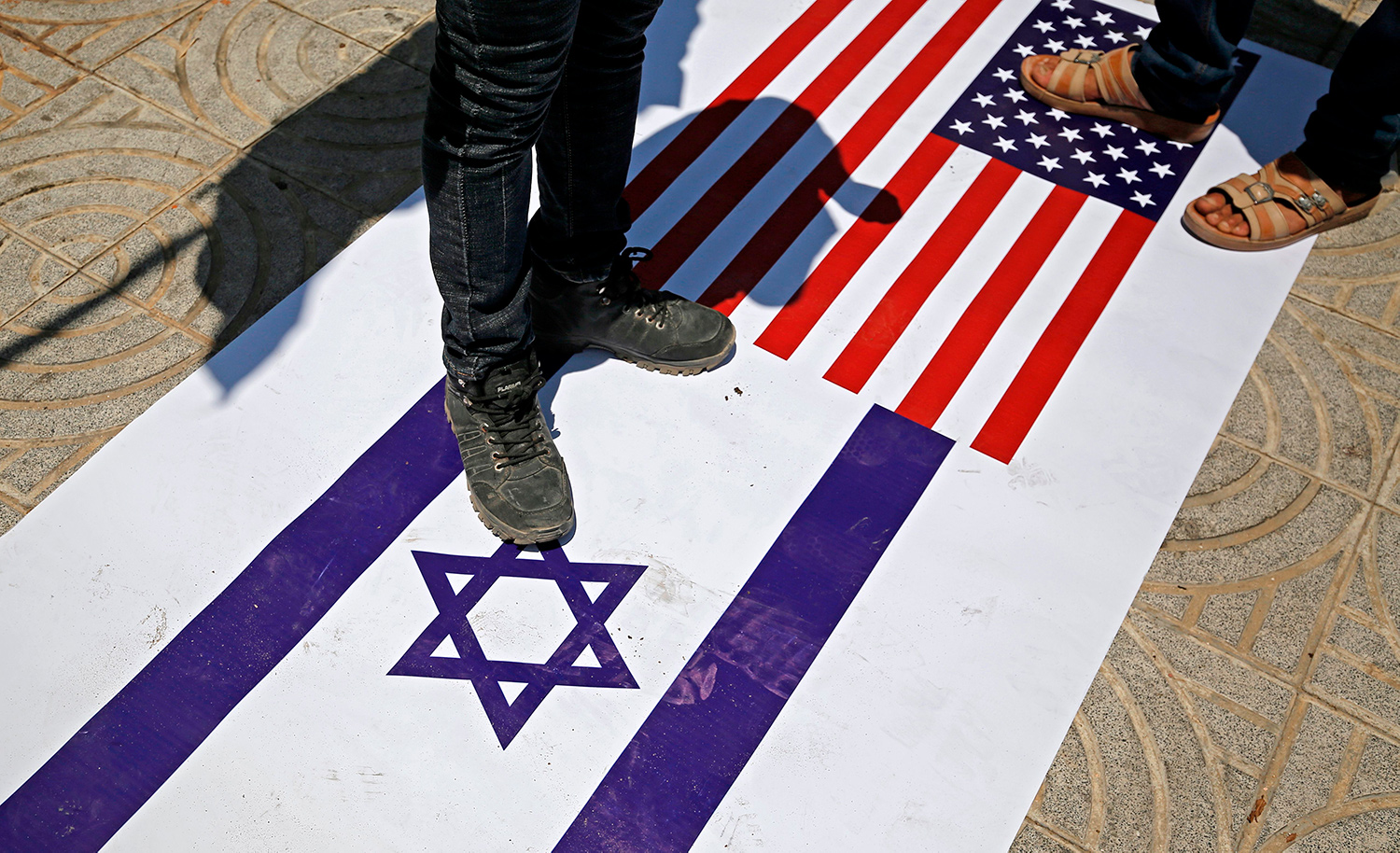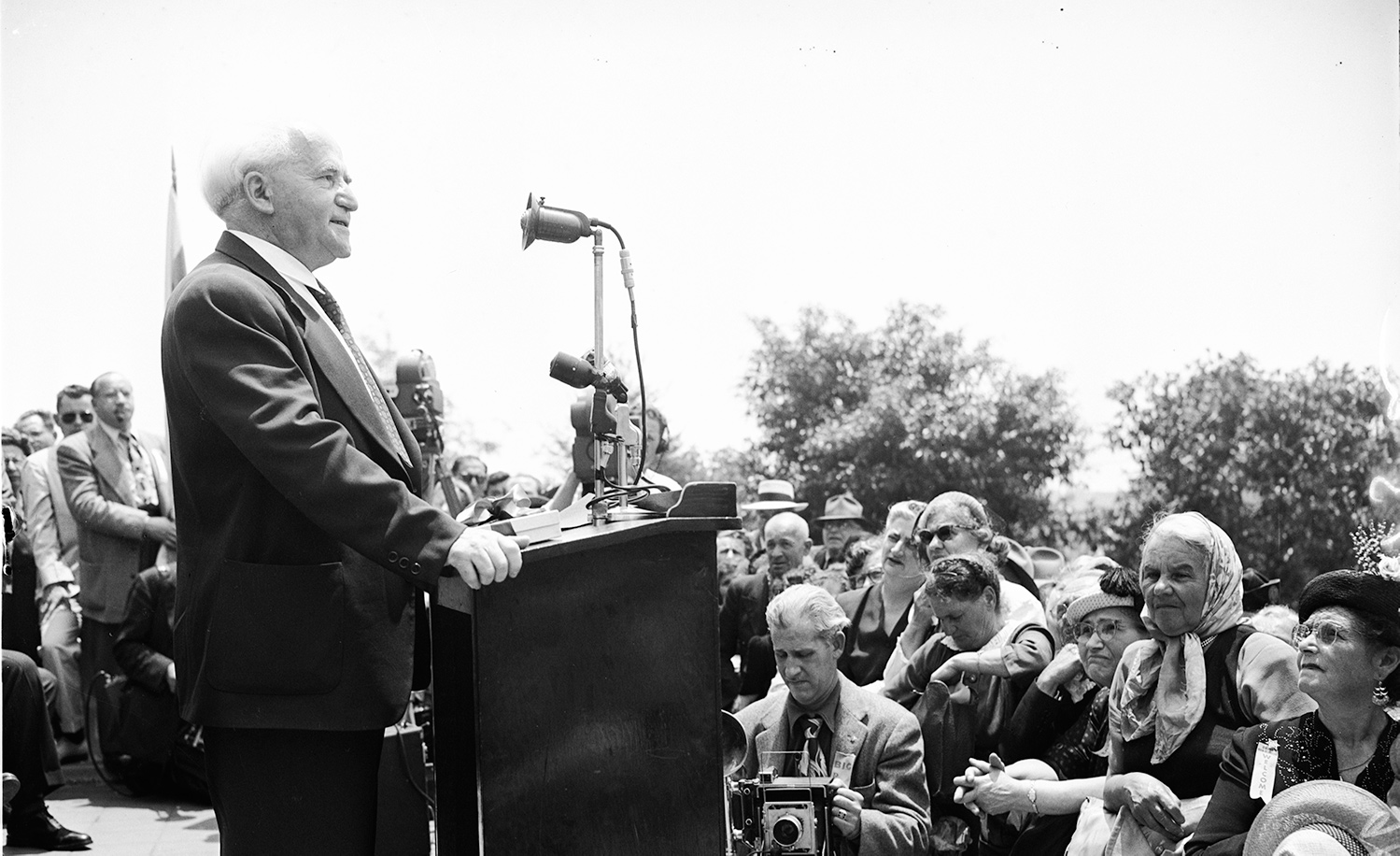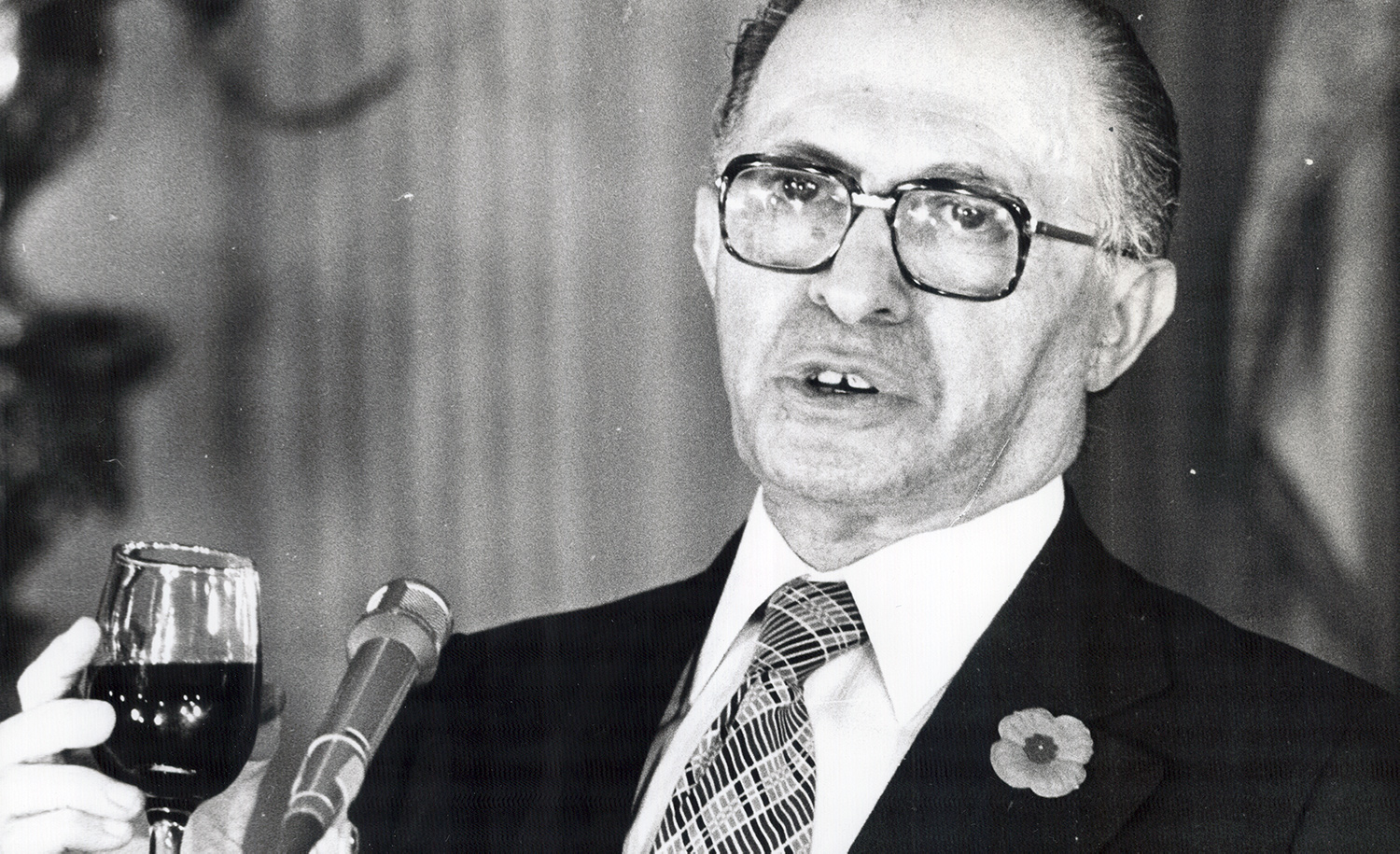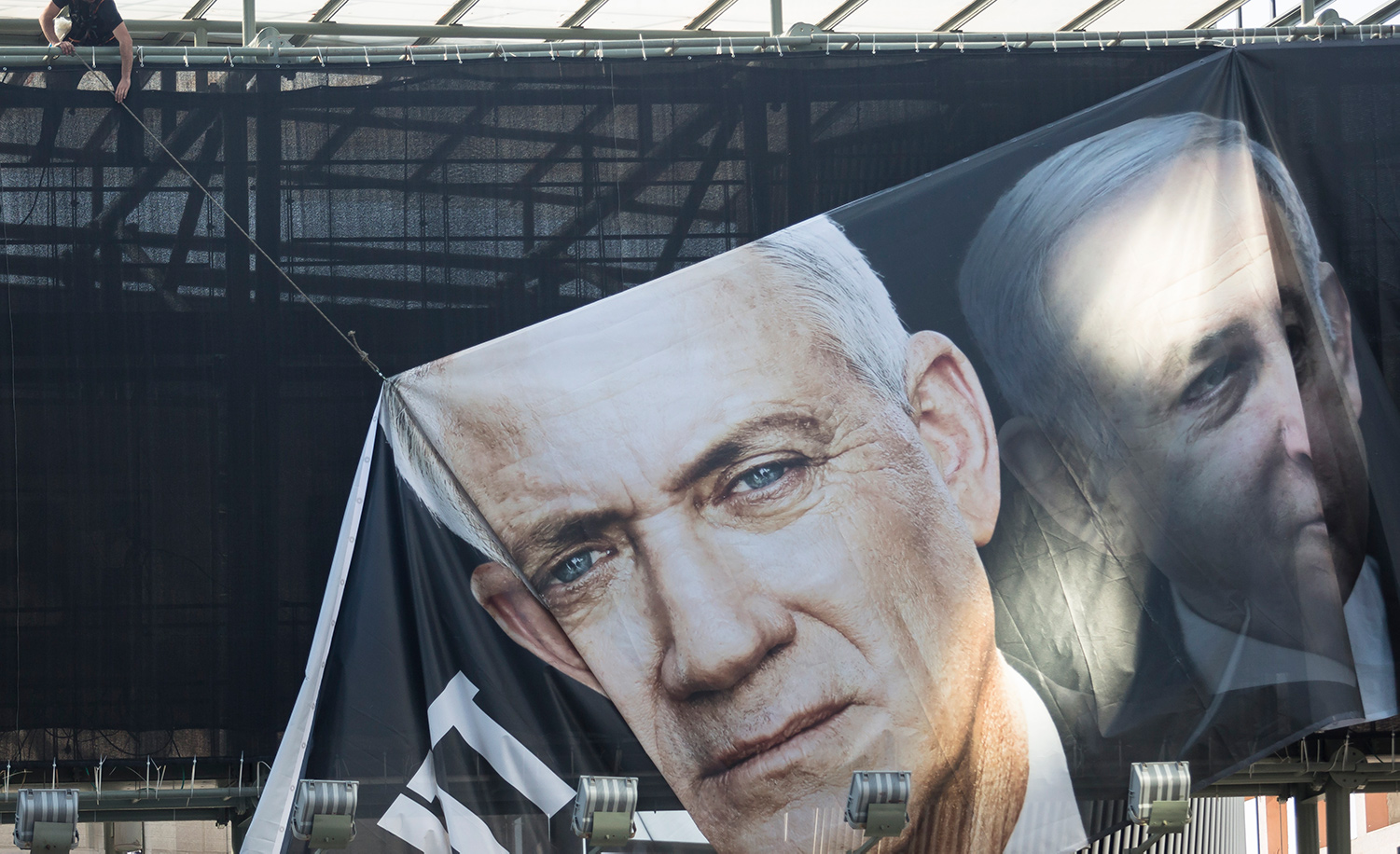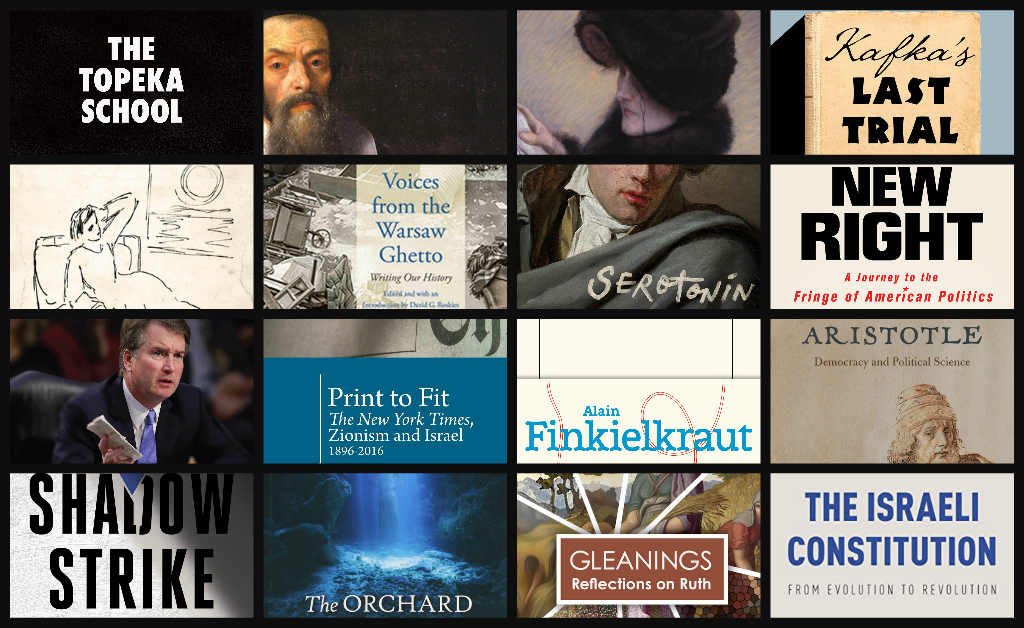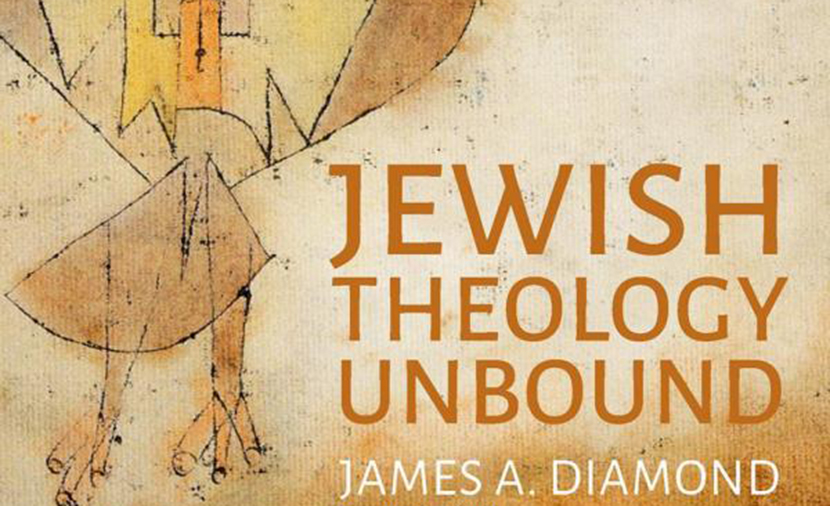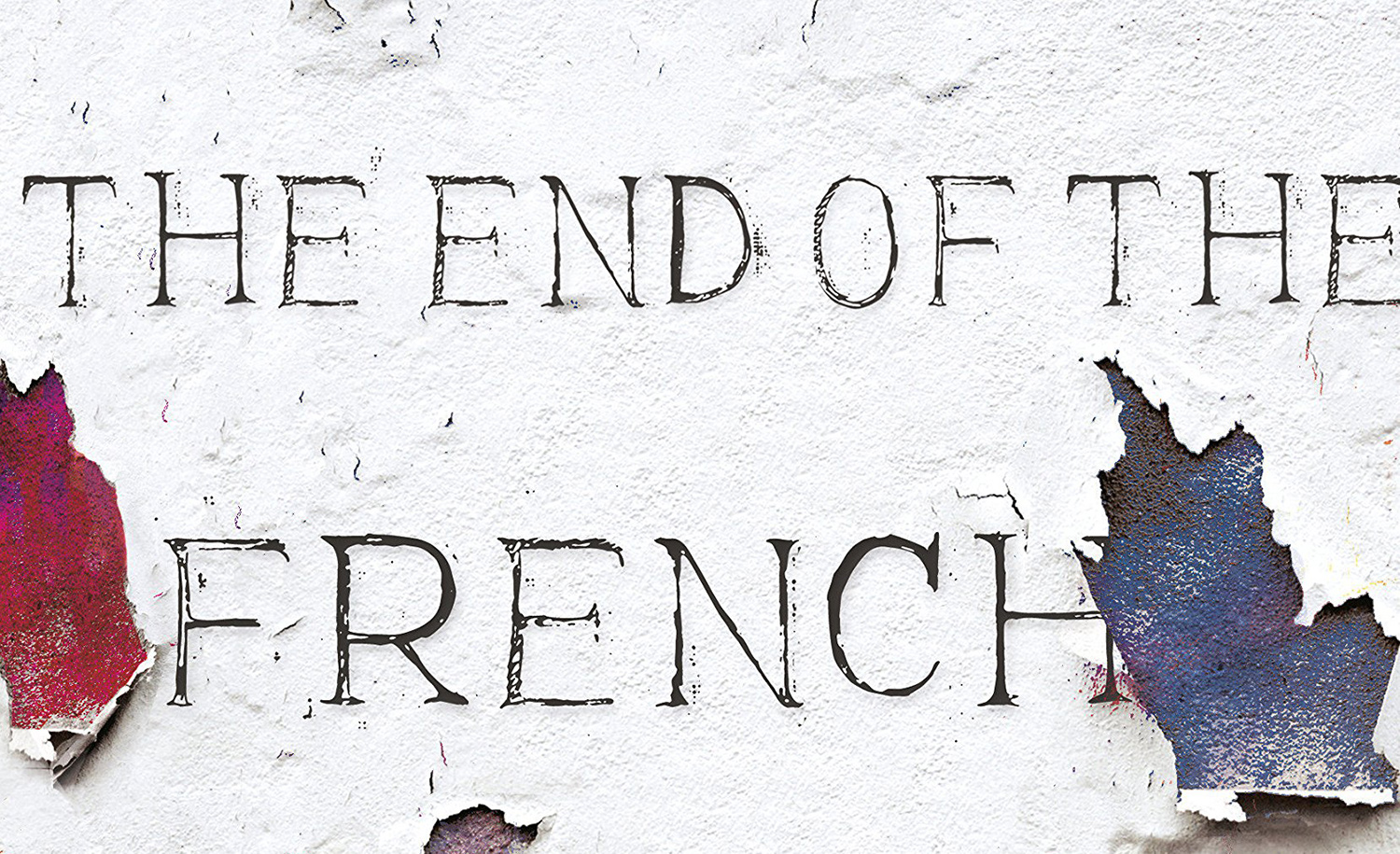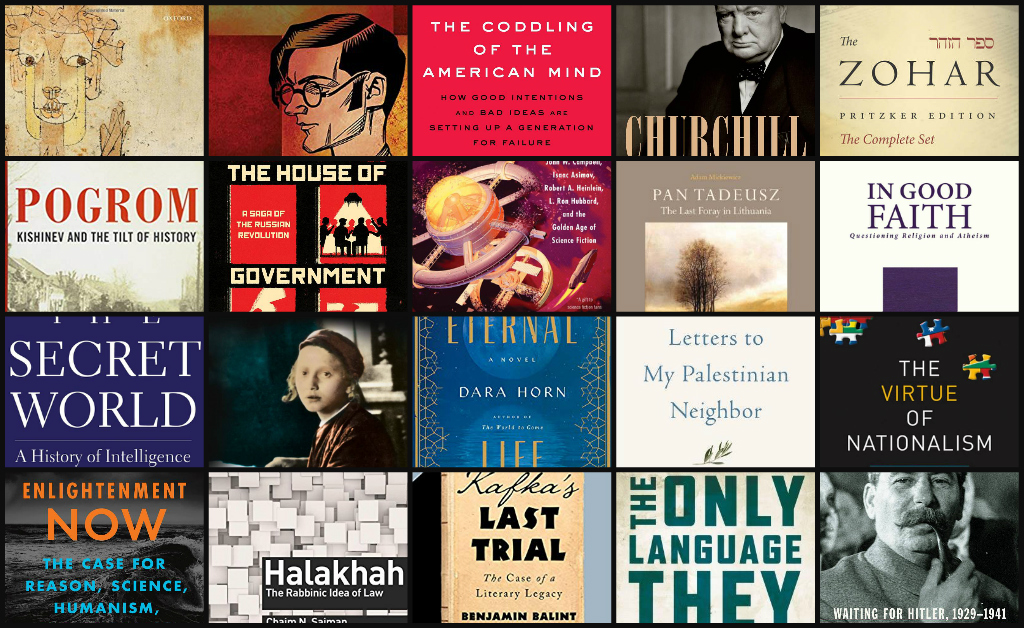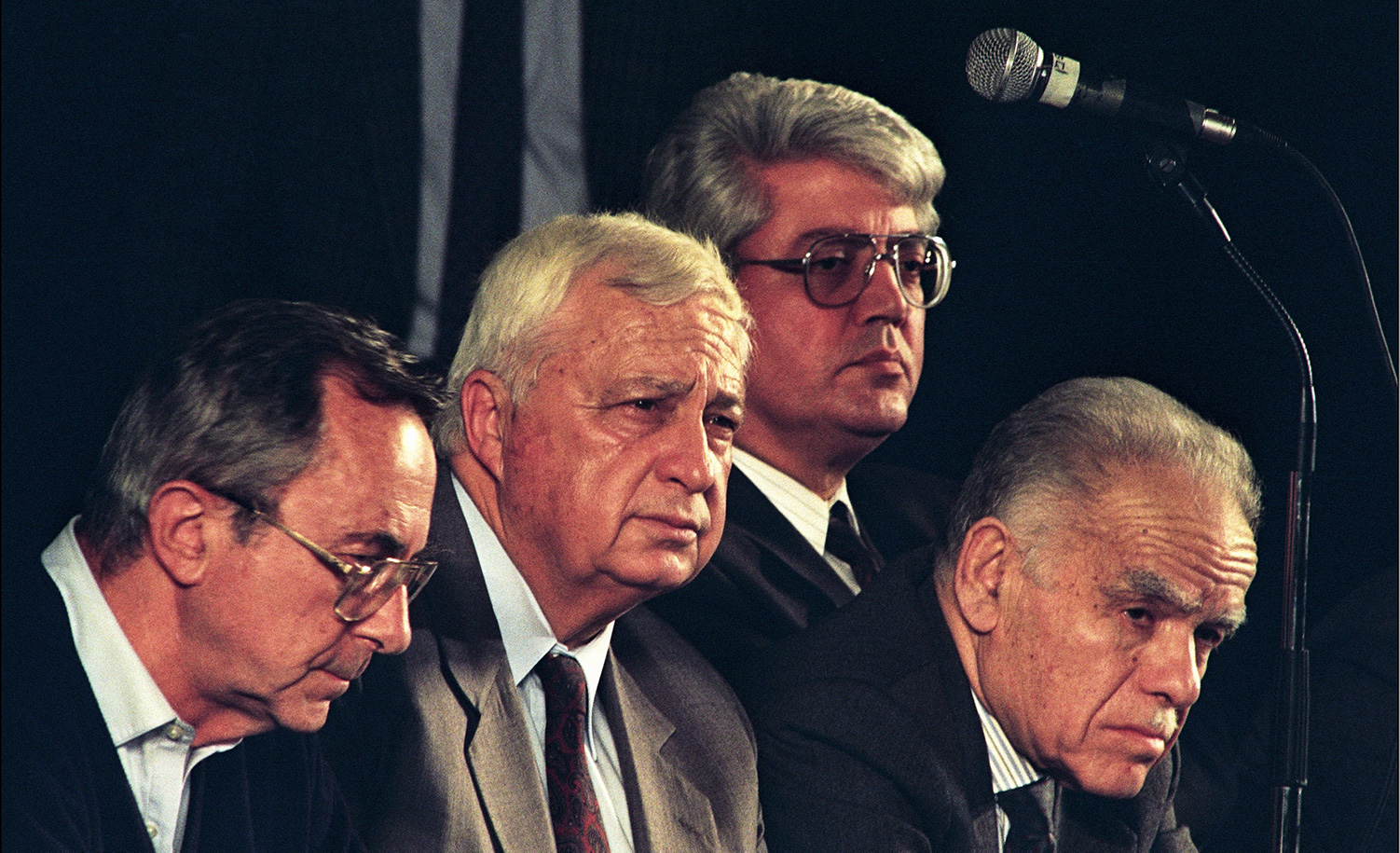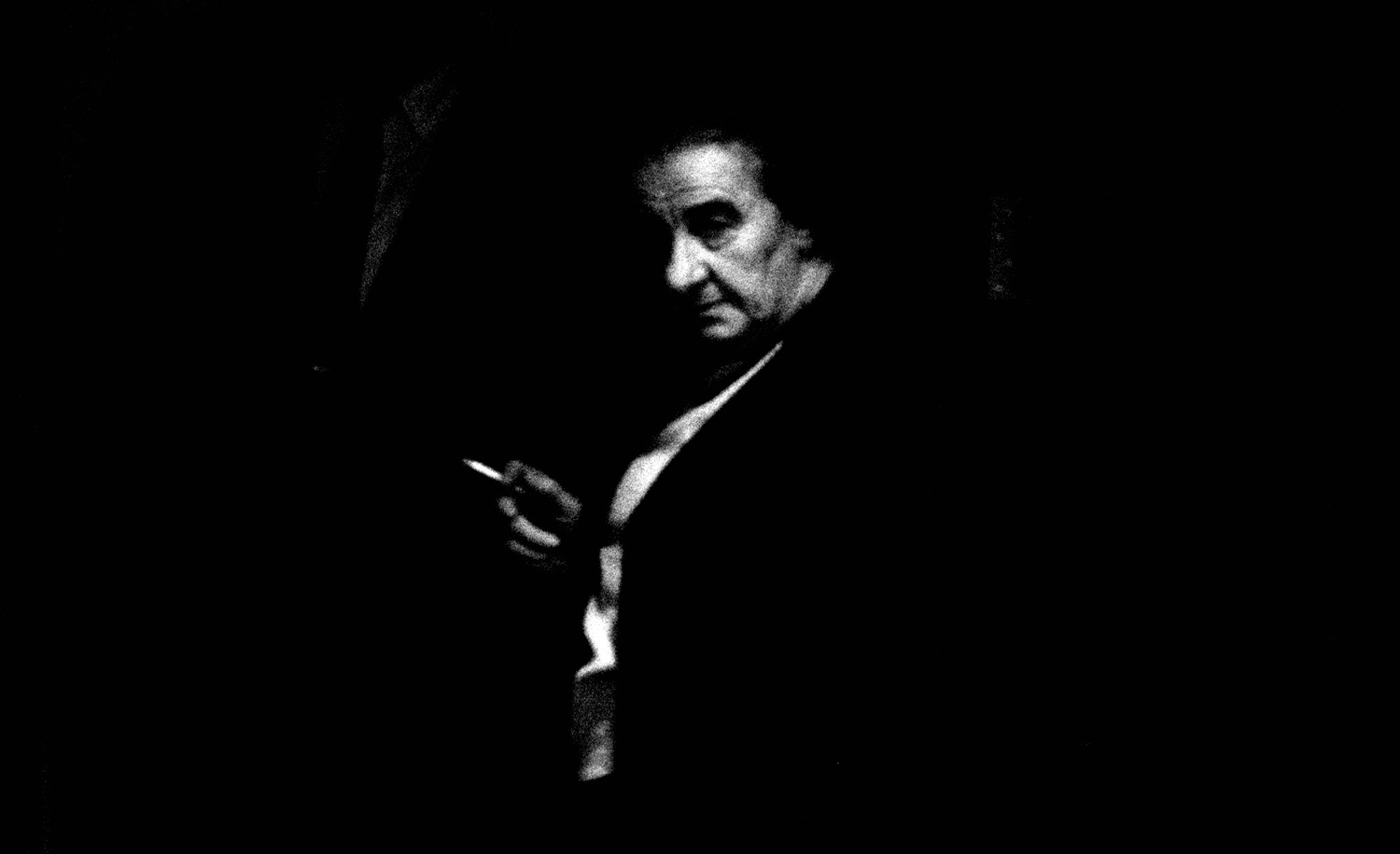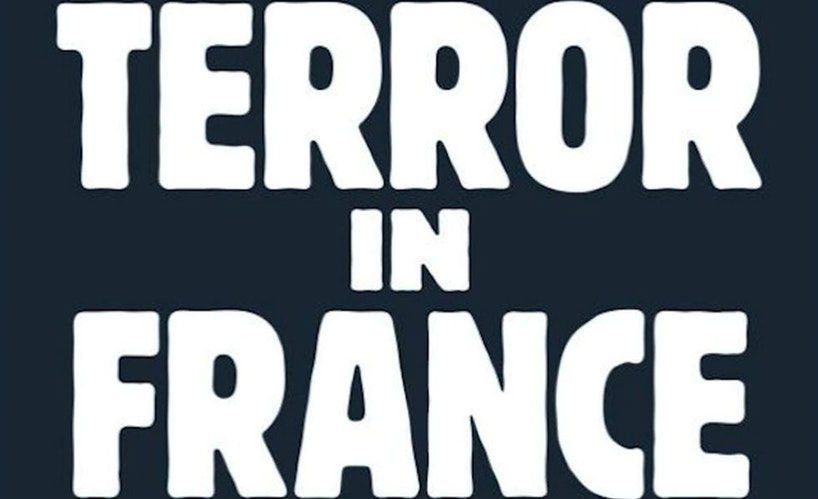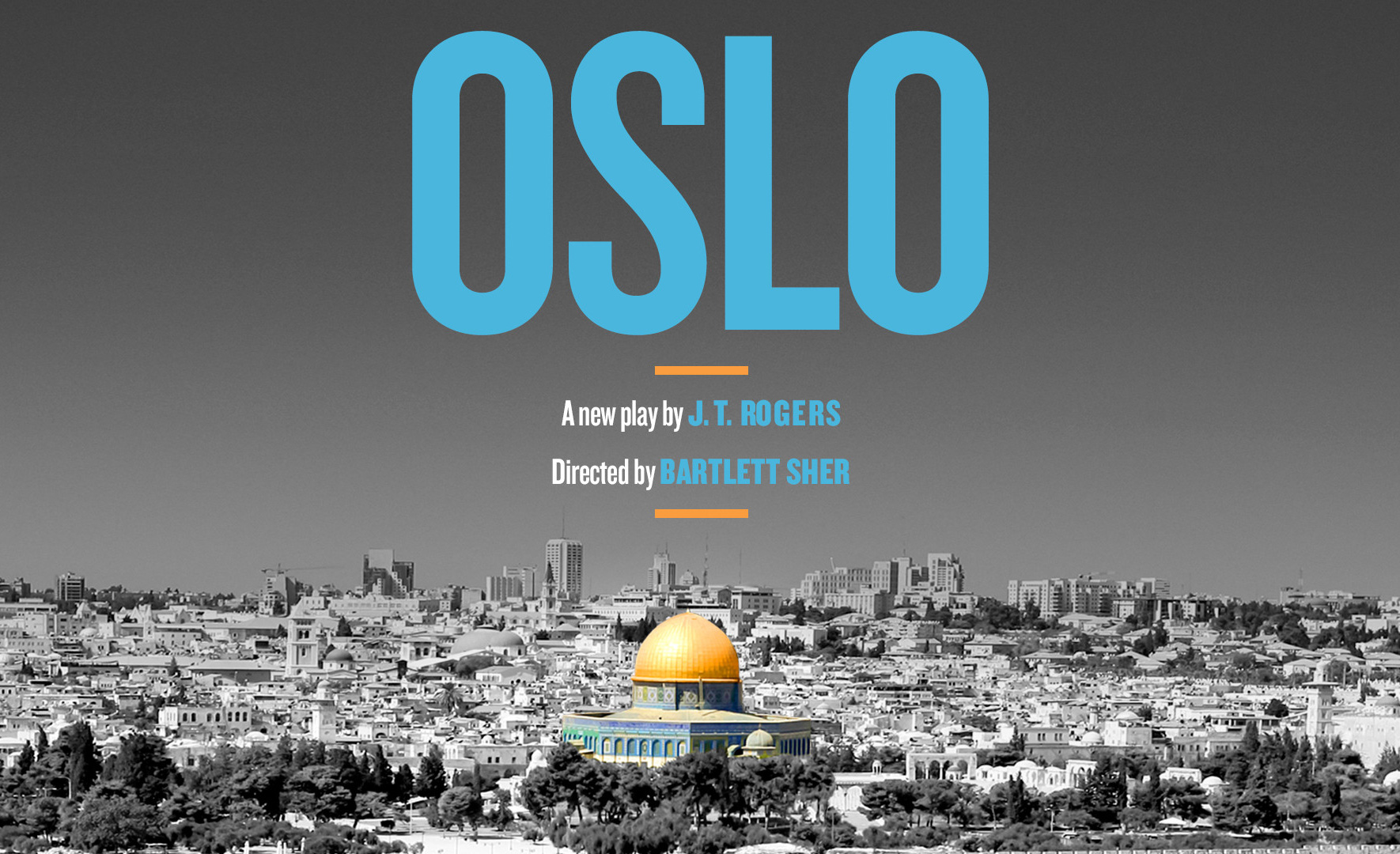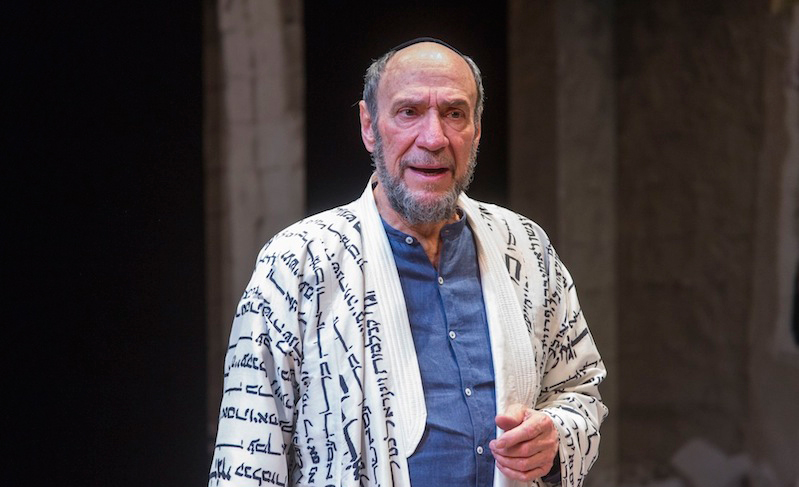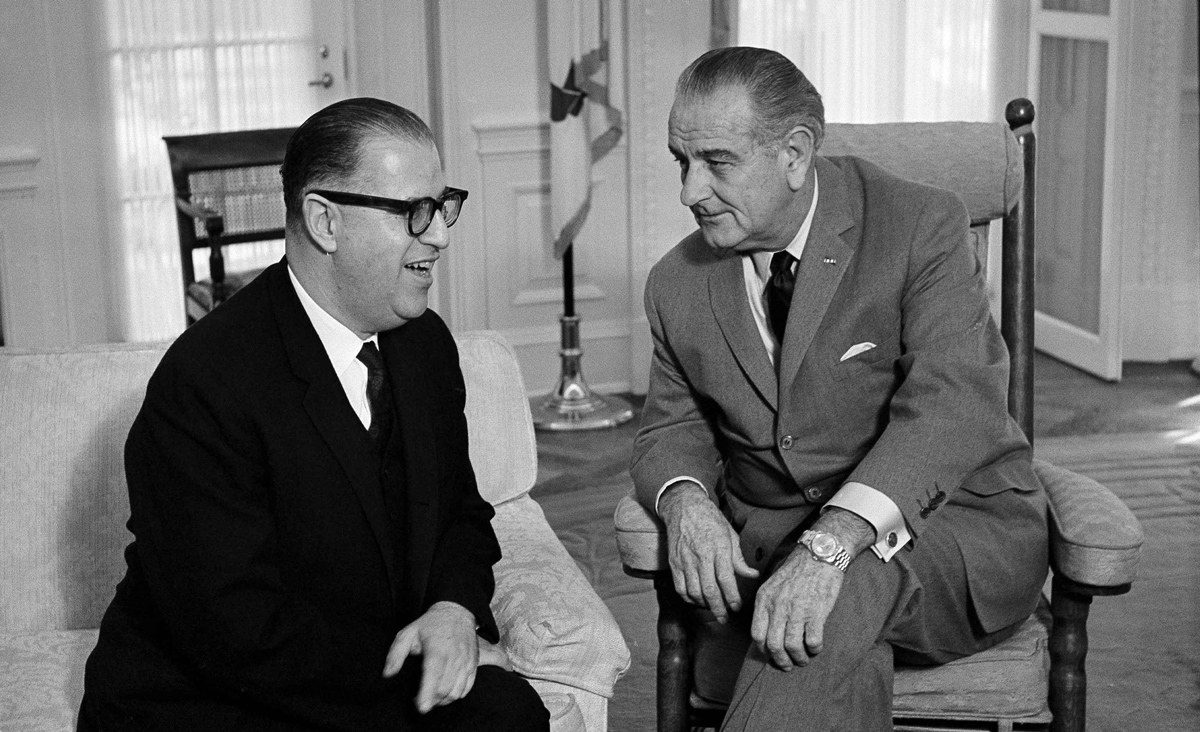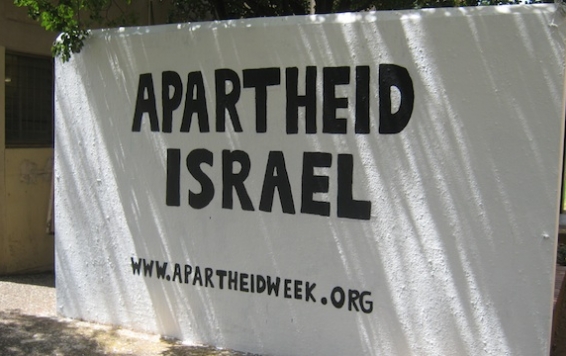Neil Rogachevsky
Neil Rogachevsky teaches at the Straus Center for Torah and Western Thought at Yeshiva University and is the author of Israel’s Declaration of Independence: The History and Political Theory of the Nation’s Founding Moment, published in 2023 by Cambridge University Press.
What Would Ben-Gurion Do?
Israel’s founding father argued for a conception of politics uniquely tailored to the Jewish state. Fifty years after his death, his country could use it more than ever.
The Best Books of 2023, Part I
Featuring prime ministers, kidnappings, popes, silences, exiled shadows, portraits, intellectual origins, the best minds, and more.
Podcast: Neil Rogachevsky and Dov Zigler on the Political Philosophy of Israel's Declaration of Independence
The authors of a new book explore the principles animating Israel’s founding moment.
Israel's Other Tyranny of the Minority
Israel’s parliamentary system produces weak governments that are increasingly liable to capture by minority parties, who have every incentive to indulge their most radical plans.
The Best Books of 2022, Chosen by Mosaic Authors
Featuring wars, peacemakers, two cultures, pogroms, plays, four ages, wild problems, caves, magic, letters, American conservatives, liberal parents, radical children, and more.
Will Israel's Next Government Last Longer than a Container of Hummus?
How the Jewish state found itself going to elections yet again, and what reforms might, at last, bring some stability.
Does the Internet Have a Theory Bro Problem?
What happens when the study of the humanities migrates from campus to the web?
Fouad Ajami's "When Magic Failed" Captures Lebanon at Its Best and Worst
The late historian’s memoir, an unstinting portrait of the unhappy collision of tradition and modernity in Lebanon in the years following World War II, is one of the best of our time.
Checking In on Thomas Friedman
When it comes to Israel, the longtime columnist, a bellwether for conventional American opinion on the Middle East, is stuck three decades in the past.
Israel’s Going Through A Spiritual Transformation. How Is It Dealing?
An interview with Ruth Calderon, a Talmud scholar and former member of Knesset, on the Judaization of the Israeli public sphere—and much more.
What Ben-Gurion Learned From Churchill
Israel’s future prime minister watched Churchill up close in war-time London, and then sounded Churchillian notes when called upon to rally his own nation.
Netanyahu: The Figures Who Formed Him, and the Duties of Jewish Leadership
A new interview, published in English here for the first time, reveals the political tradition at work in the Israeli leader’s thinking.
The Best Books of 2021, Chosen by Mosaic Authors (Part I)
Five of our writers pick several favorites each, featuring a duke’s children, Jewish treasures, zealots and emancipators, revolts, dual allegiances, spies, and more.
Against Court and Constitution: A Never-Before-Translated Speech by David Ben-Gurion
Israel famously has no constitution. It turns out that’s no accident but rather the will of its first prime minister, who explains his thinking here.
The Best Books of 2020, Chosen by Mosaic Authors (Part III)
Five more of our regular writers pick several favorites each, featuring Stalingrad, the master, Margarita, parasitic minds, infectious ideas, dust, heaven, Zoom, traveling light, and more.
Peter Beinart's Wedge
The don of liberal Zionism has come out against a two-state solution. His argument is delusional and messianic. But that’s not the real problem with it.
Ben-Gurion: The Man Who Willed A State
As a new biography shows, David Ben-Gurion could be petty, harsh, and stubborn. He also decisively shaped almost every institution that would form the state of Israel.
“We Were All Born in Jerusalem”: A Never-Before-Translated Speech by Menachem Begin
What the future prime minister of Israel had to say about his past and present homelands.
Spare Your People a Fourth Election, O Israel, and Form a Minority Government
Three elections having led to inconclusive results, a fourth now looms. There’s another, smarter, more representative way.
Podcast: Neil Rogachevsky on the Roots of Israel's Political Crisis and How to Fix It
As the nation gears up for its third election in a year, the time may have come to consider a different way of voting.
The Best Books of 2019, Chosen by Mosaic Authors (Part II)
Six more Mosaic writers share their favorites, featuring shadow strikes, orchards, gleanings, constitutional evolutions and revolutions, serotonin, odd women, and more.
What Kind of God Is the God of the Jews?
For thousands of years both friends and enemies of Judaism have labeled it a religion of deed rather than creed, of law rather than faith. A new book firmly and fervently disagrees.
The Return of Shlomo Sand
The notorious author of The Invention of the Jewish People is back, this time with a screed against certain French intellectuals with a certain something in common.
The Best Books of 2018, Chosen by Mosaic Authors
Letters, antidotes, eternal lives, outcasts, secret worlds, pogroms, and more.
A First Draft of the Life of Benjamin Netanyahu
A new biography compels the thought that the prime minister’s alienation from opinions held dear by the Israeli elite—and by his biographer—has been one of the secrets of his success.
Self-Portrait of a Zionist Statesman and Thinker
As his new memoir brings home, Moshe Arens is one of the most accomplished, articulate, and clear-eyed figures in Israel’s history. What a pity that his best ideas were often thwarted.
Best Books of the Year, as Selected by Mosaic Authors
Spy games, catch-67s, lionesses, smugglers, patriots, setting suns, and more.
The Ardent, Stiff-Necked Spirit of Golda Meir
A new biography brings to life a leader of few words who accomplished much with the ones she had, and reminds us how much of her Zionist perseverance remains intact today.
The Only Language He Understands
Without knowing the Middle East, the author of a highly regarded new book presumes to prescribe what would be best for it—and especially for Israel.
French Islam's Radical Turn, and Its Ramifications for French Jews
A new book shows the role played by anti-Semitism in the strengthening and consolidation of Islamism in France.
The Flaws of "Oslo" Are the Same as the Flaws of Oslo
In its embrace of social psychology and “process over politics,” the new hit drama mirrors the mentality that helped produce the disastrous Oslo Accords themselves.
"Nathan the Wise": An Ambiguous Plea for Religious Toleration
A new production of an old play stresses the benefits of religious tolerance. But the play itself suggests there might also be costs—and specifically for Jews.
Who Was Abba Eban?
The “voice of Israel,” as David Ben-Gurion dubbed him, was revered abroad, mocked and sidelined at home. A new biography helps explain why.
A New Israeli Consensus
Sure, its politics are chaotic. But on several of the most important issues, Israel today is less divided than it has been in a long time.
The Unwritten Rule
In France, one is expected to be quiet about one’s Judaism in public. But a number of working-class French Jews don’t care.
